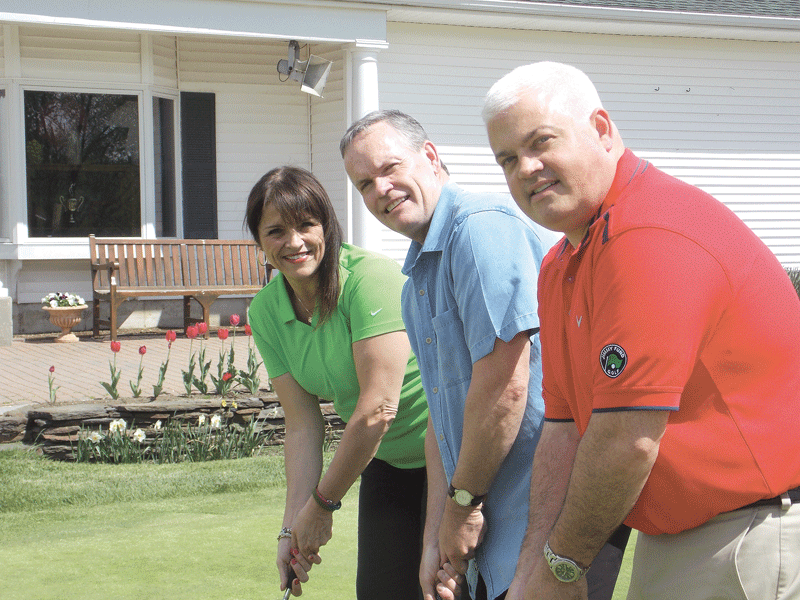Keeping Kids Safe This Summer Follow These Tips to Avoid Some Common Dangers
There is nothing more important we can do as parents and caregivers than to protect the safety and health of our children.
During the summer months, when children are out of school and spending more time outdoors playing — whether riding their bicycles, playing baseball, swimming, or participating in myriad other healthy activities — we see more children in our Sadowsky Family Pediatric Emergency Department for unintentional injuries.
One of the most popular recreational activities in the summer is swimming. According to a study published in the March issue of the American Journal of Emergency Medicine, more children today visit the emergency room for swimming injuries than 20 years ago. The key message in regard to swimming safety is to never turn your back on a child in water — even for a second, and even if they know how to swim. Most drownings are silent, not the wild thrashing around that you might see depicted in a movie or on television, and do not bring attention to those nearby, as the child quietly submerges under the water.
Safe Kids of Western Mass., headquartered at Baystate Children’s Hospital, recommends that, when there are several adults present and children are swimming, you use the ‘water-watcher card’ strategy. This card designates an adult as the water watcher for specific periods of time to prevent lapses in supervision. These cards can be downloaded at safekids.org.
Parents — who need to be trained in CPR, by the way — must remind their kids and their kids’ friends not to dive headfirst into the water, which needs to be at least 10 to 12 feet deep to avoid serious head and spinal cord injuries. Keep in mind that inflatable floaties are not a substitute for the safety provided by an approved life vest, and offer a false sense of security. Also, all pools should be fenced in with a gate that remains closed at all times.
Also, if your child has seizures, he or she should receive clearance from their pediatrician before swimming in any pool or body of water, even if a lifeguard is on duty.
Along with the warmer weather comes the appearance of trampolines in many backyards. The American Academy of Pediatrics (AAP) recommends that pediatricians counsel their patients and families against the recreational use of trampolines, explaining that current data indicates that safety measures have not significantly reduced injury rates. Some recommendations for parents who already have trampolines at home include active supervision, restricting use to a single jumper, having adequate protective padding, and not allowing their children or others to perform somersaults and flips, which can cause severe cervical spine injures. Also, circular trampolines may be safer than square versions because they push the jumper back to the middle.
Fun and Sun
For those children who love to bicycle, skateboard, ride their scooters, or strap on a pair of in-line skates, helmets and other protective gear are a must to avoid serious head and other injuries. Another protective measure this summer is to not allow your child to play barefoot at the playground.
Since kids are outdoors more in the summer, that means greater exposure to the sun and its damaging rays. Parents should apply a broad-spectrum sunscreen with an SPF of at least 15 to 30, and reapply it at least every two hours if the child is swimming or sweating from rigorous activity. Babies younger than six months old should be adequately covered with clothing and kept out of the direct sunlight, with only a minimal amount of sunscreen applied to small areas of exposed skin, such as the face and back of the hands.
The summer’s heat and kids’ intensive activity aren’t always a safe mixture. Kids should be adequately hydrated before going outdoors on a hot day, and during times of prolonged physical activity, they should rehydrate with water every 20 minutes. Tell your child, if he or she feels lightheaded, dizzy, or nauseous, to get somewhere cooler immediately.
Being outdoors more in the summer also means a greater risk for bug bites from bees, hornets, mosquitoes, and other pesky insects. The current recommendation by AAP and the Centers for Disease Control and Prevention is to use insect repellents of 10{06cf2b9696b159f874511d23dbc893eb1ac83014175ed30550cfff22781411e5} to 30{06cf2b9696b159f874511d23dbc893eb1ac83014175ed30550cfff22781411e5} DEET on children older than two months of age. However, these products should not be used on children younger than six months of age. Another tip is to avoid using scented soaps, perfumes, and hairsprays on your child, which serve as an attraction to bugs.
While most kids who are stung by bees or wasps won’t experience an allergic reaction, if they have had a history of allergies, it could become a problem. Parents should watch for any swelling or heat around the bite area and signs that they are having trouble breathing. Call 911 if this should happen. If you are having trouble accessing care, try finding someone close by who might have an EpiPen injector to control the onset of anaphylactic shock.
Also, while parents are often greatly concerned when they notice a tick imbedded in their child’s skin, the truth is that the risk of developing Lyme disease after being bitten by a tick is only about 1{06cf2b9696b159f874511d23dbc893eb1ac83014175ed30550cfff22781411e5} to 3{06cf2b9696b159f874511d23dbc893eb1ac83014175ed30550cfff22781411e5}, since not all ticks carry the disease. However, the risk of contracting Lyme disease becomes greater after the tick has been attached for more than 24 hours and begins to feed and becomes engorged. If there is no sign that it has become engorged, you can often safely remove the tick — without the need to visit your pediatrician or local emergency room — by gently using a pair of tweezers to grasp the tick as close to the head/mouth as possible, then pulling it out in an upward motion.
Kids often like to be helpful at home, and some hope to earn money by cutting lawns. However, the AAP suggests that children younger than 16 years of age should not be allowed to use ride-on mowers, while those younger than 12 should not use walk-behind mowers. Also, for safety’s sake, children should not be allowed to climb aboard as passengers on ride-on mowers.
Celebrate Safely
With the Fourth of July just around the corner, it’s important to keep in mind that fireworks — which are illegal in Massachusetts — are extremely dangerous, especially in the hands of youngsters or even adults who are not professionally trained in their use. Fireworks involve explosions, accelerants, and projectiles, and they can result in serious burns and other devastating injuries, lifelong disabilities, and even death. Their use should be left to professionals at sanctioned community celebrations.
It should also go without saying to never, ever leave a child unattended in a car, especially in the summer’s heat. A few minutes might not seem like a long time, but there are circumstances when it can mean the difference between life and death. As temperatures begin to heat up, children are at serious risk for heatstroke when left alone even for a few minutes in a closed vehicle.
For additional detailed information on summer safety, visit safekids.org or aap.org. For more information on Baystate Children’s Hospital, log onto baystatehealth.org/bch. v
Dr. Joelli Hettler is chief of the Division of Pediatric Emergency Medicine at Baystate Children’s Hospital.
Got Pics? Send your photos to: Picture This; c/o Joseph Bednar,
The Healthcare News, 1441 Main Street, Springfield, MA 01103; or e-mail bednar@healthcarenews.com
Please include detailed caption material and your name and contact information.
The 20th Annual American Red Cross Pioneer Valley Chapter Golf Tournament, sponsored by Pellegrini, Seeley, Ryan & Blakesley, P.C., is scheduled for Monday, June 24 at Springfield Country Club in West Springfield. The golf tournament is one of chapter’s signature fund-raising events. This year’s event co-chairs are, from left, Sheila Doiron, director of Communications and Community Relations, Columbia Gas of MA; John Doleva, president and CEO, Naismith Memorial Basketball Hall of Fame; and William Trudeau, president and CEO, Insurance Center of New England. Tournament entry includes lunch, dinner, drawings, and raffles, with morning and afternoon shotgun sessions available. Foursomes in the morning tournament are available for a$1,000 donation, and afternoon foursomes are available at $1,200. Other sponsorships are also available. All proceeds from the tournament will be used to assist the victims of local disasters. For sponsorship information or to donate a door prize or auction item, contact Mark Brinkerhoff at (413) 233-1003 or mark.brinkerhoff@redcross.org .


